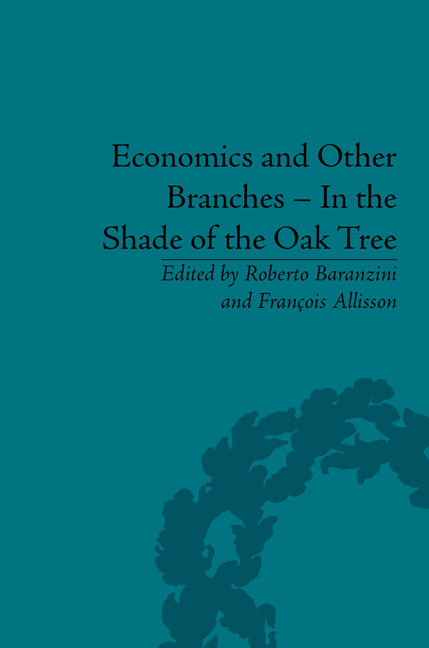Book contents
- Frontmatter
- CONTENTS
- List of Contributors
- List of Figures and Tables
- Introduction
- Pascal Bridel's Bibliography (up to 2013)
- Part I Léon Walras's Economic Thought
- Part II The Spreading of Thought
- Léon Walras's Reception
- The Lausanne School
- 7 Pareto: A Possible Forerunner of the Studies on Social Complexity
- 8 Samsonoff on Rent Theory: Or, Yet Another Member of the Lausanne School?
- French Matters
- Cambridge UK
- Part III Monetary Theory
- Part IV Methodology
- Part V Economics and Humanities
- Economics and Social Sciences
- Some Insights from Visual Arts
- Part VI Economics and Civil Society
- Notes
- Index
7 - Pareto: A Possible Forerunner of the Studies on Social Complexity
from The Lausanne School
- Frontmatter
- CONTENTS
- List of Contributors
- List of Figures and Tables
- Introduction
- Pascal Bridel's Bibliography (up to 2013)
- Part I Léon Walras's Economic Thought
- Part II The Spreading of Thought
- Léon Walras's Reception
- The Lausanne School
- 7 Pareto: A Possible Forerunner of the Studies on Social Complexity
- 8 Samsonoff on Rent Theory: Or, Yet Another Member of the Lausanne School?
- French Matters
- Cambridge UK
- Part III Monetary Theory
- Part IV Methodology
- Part V Economics and Humanities
- Economics and Social Sciences
- Some Insights from Visual Arts
- Part VI Economics and Civil Society
- Notes
- Index
Summary
In Pareto's thought, the idea of complexity, which he conceived as the need for an interdisciplinary study of social phenomena (starting from economics) with associated recourse to all available social sciences (and related methods), has been present since the beginning of his scientific production, as direct result of his methodology choices (see pp. 101–2). Having recalled that Pareto's interest for sociology arose much earlier than his Treatise on sociology (The Mind and Society) (pp. 102–3), we present an outline of the phenomenal interdependence in the Treatise (pp. 103–8), which apparently represents the reason why we might assume that Pareto is a forerunner of studies on social complexity. Having recalled the defence that Pareto made of his interdisciplinary approach (pp. 108–9), we end by illustrating an interesting interpretation of the phenomenal interdependence, according to Pareto, based on methods that are perhaps referred to the current school of complexity (pp. 109–10).
Methodological Choices
The starting point of the Paretian investigations on social complexity is surely the early Millian methodological choice, concerning the concrete deductive method, as well as that of the composition of causes, implying that social phenomena should, as a first step, be broken down into various aspects to summarize later on these partial studies.
- Type
- Chapter
- Information
- Economics and Other Branches – In the Shade of the Oak TreeEssays in Honour of Pascal Bridel, pp. 101 - 112Publisher: Pickering & ChattoFirst published in: 2014

